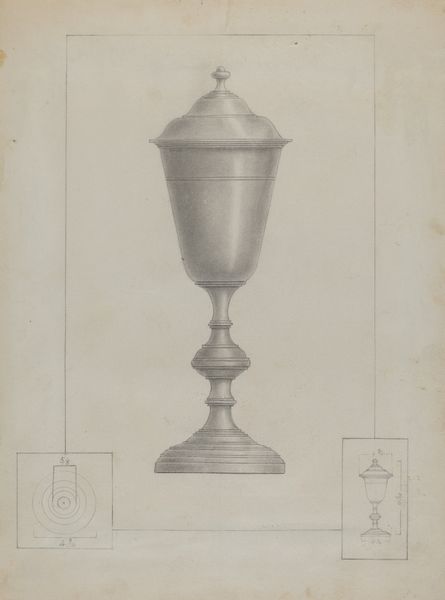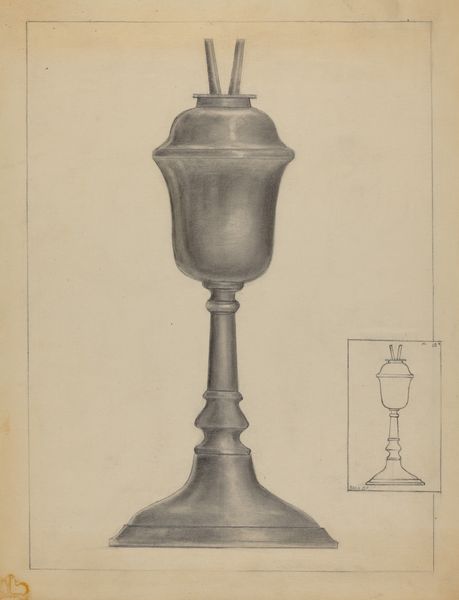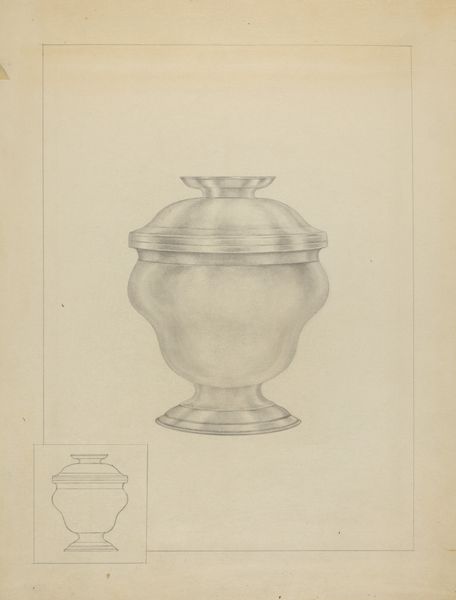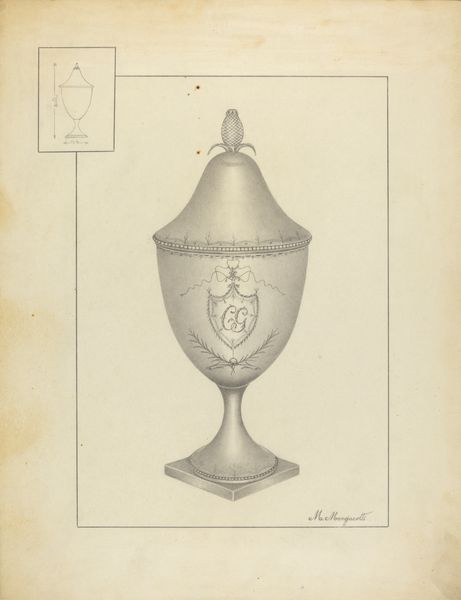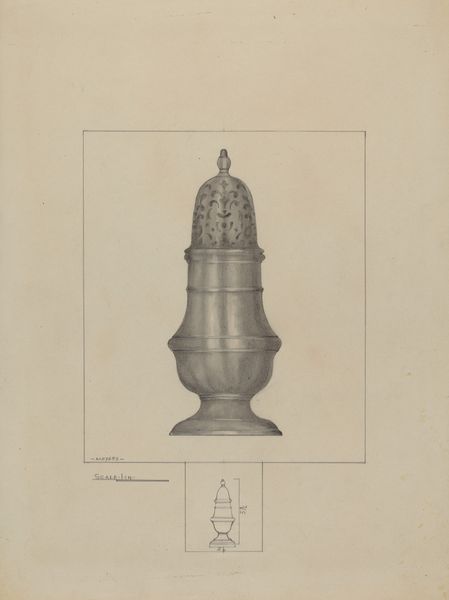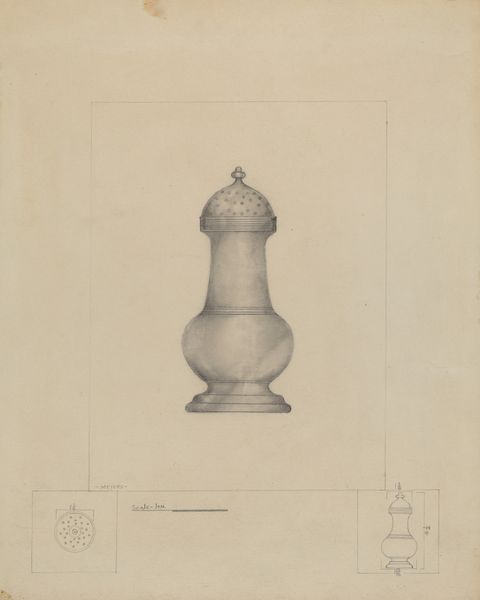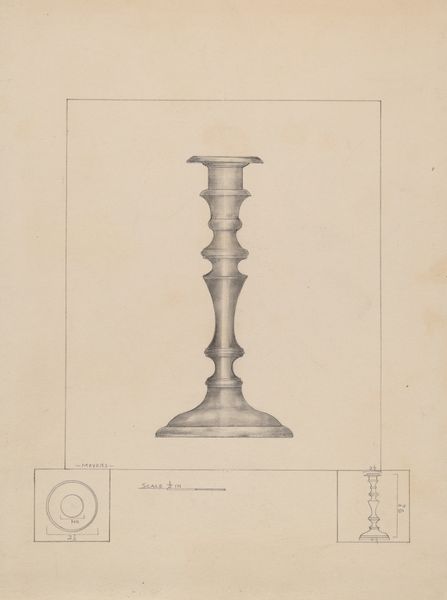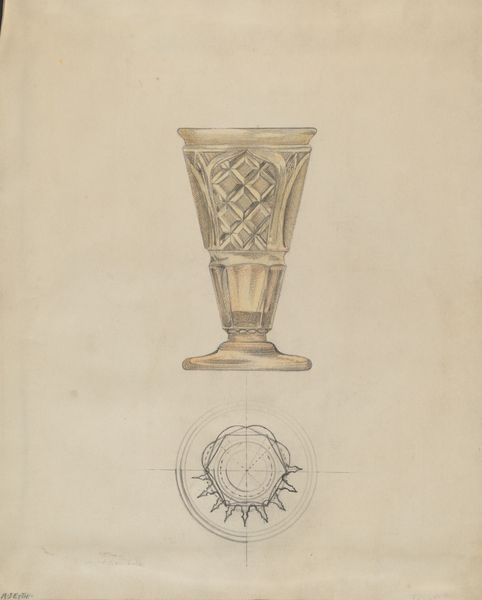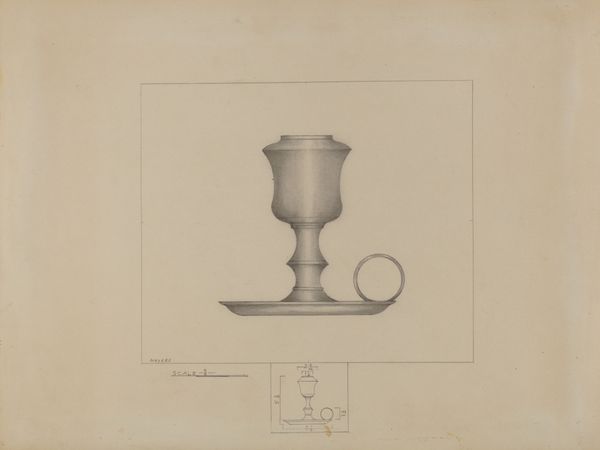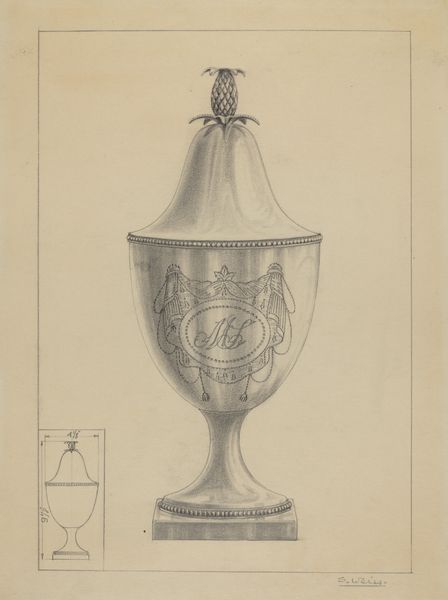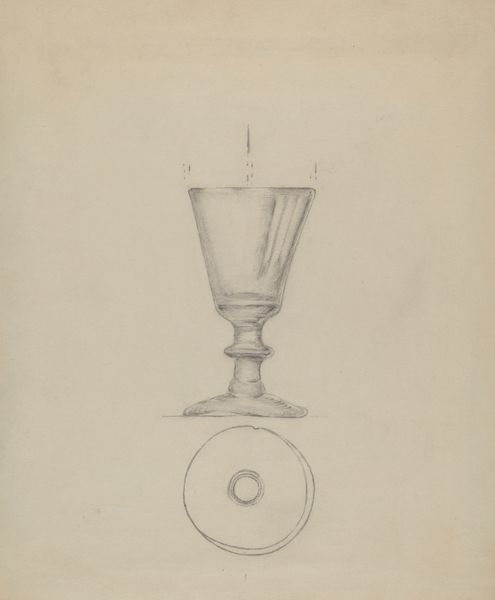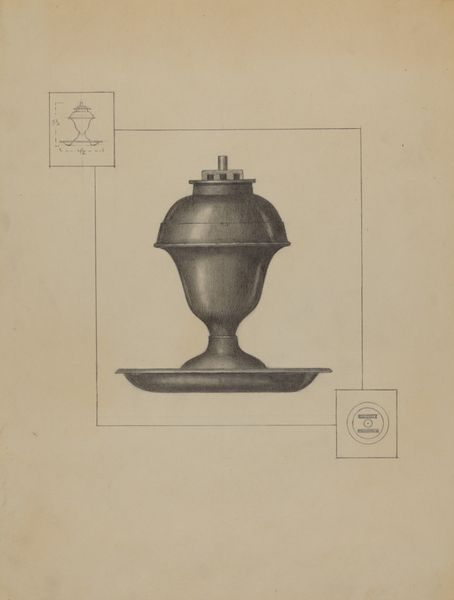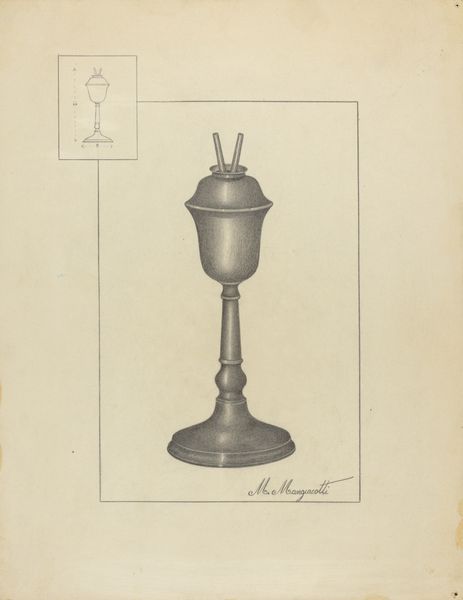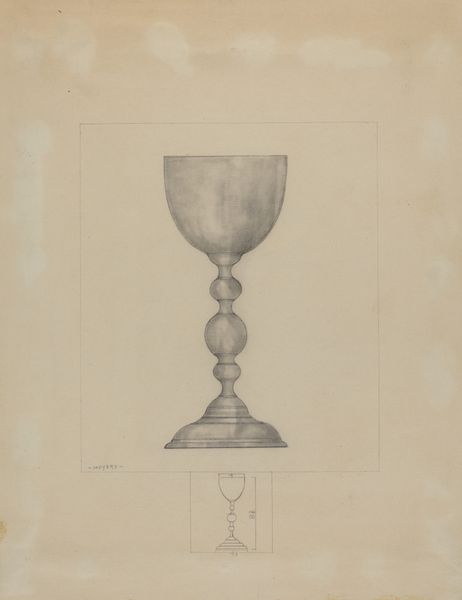
drawing, pencil
#
drawing
#
pencil drawing
#
geometric
#
pencil
Dimensions: overall: 29.3 x 23.1 cm (11 9/16 x 9 1/8 in.) Original IAD Object: 10 3/4" high; 4 3/4" in diameter
Copyright: National Gallery of Art: CC0 1.0
Editor: This is Henry Meyers’ pencil drawing of a Pewter Chalice, created around 1936. I’m struck by its precision; it feels almost like a blueprint, very technical. What can you tell me about it? Curator: It's interesting you see it as a blueprint. That precision reflects a very particular moment in the history of design. Consider the social context: 1936 was deep in the Depression era. Craftmanship, even in rendering, had to demonstrate its practical value. This isn’t just an artistic impression; it's a demonstration of how something could be manufactured. Editor: So, you're saying the economic conditions influenced the *style* of the drawing itself? Curator: Absolutely. The drawing ceases to be purely representational, but an argument for function and industry, mirroring the socio-political need for tangible solutions and efficiency. Also, think about the role of religious imagery. Editor: It's a chalice, of course, suggesting religious use, but what about that era in particular? Curator: Right, the mid-30s saw various forms of social upheaval globally. Was this Meyers' comment or refuge during these times? Or, on a different angle, chalices are usually ornate, full of jewels; pewter offers something a little more down to earth...almost… democratic? Does that democratizing impulse change how we understand religious practice? Editor: That makes me see the drawing in a whole new light. The details, like the scale measurements included, now read less like technical details and more like social commentary. Thanks for the insights! Curator: My pleasure! It just reminds us to question the forces influencing artistic expression. Art never exists in a vacuum.
Comments
No comments
Be the first to comment and join the conversation on the ultimate creative platform.
